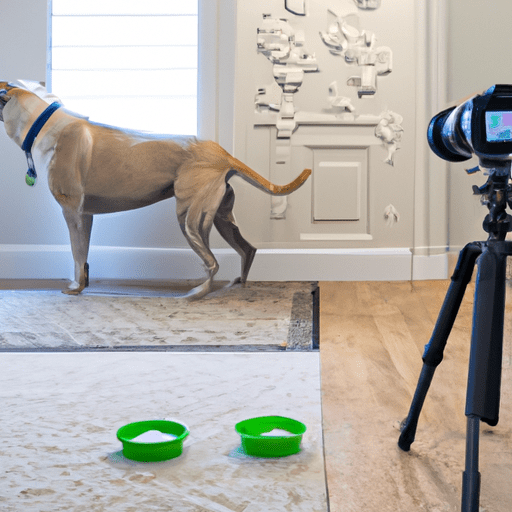Understanding Your Dog’s Bathroom Habits
As a caregiver, you may find yourself struggling with your furry friend’s bathroom habits. Your dog may be a cherished member of your family, but that doesn’t mean you want to find unpleasant surprises in your home. Understanding why your dog behaves the way they do can help you better address the problem. Dogs are creatures of habit, and a change in their bathroom routine can be the result of various factors such as stress, dietary changes, or underlying health issues.
Training Your Dog
To stop your dog from pooping indoors, you need to establish a clear and consistent bathroom routine. Below are some tips to help you with this:
- Take your dog out regularly: This could be after every meal or every few hours. The more opportunities your dog has to relieve themselves outside, the less likely they are to do so indoors.
- Reward good behavior: Always praise or reward your dog when they do their business outside. This will encourage them to repeat the behavior.
| Training Tips | Description |
|---|---|
| Consistency | Stick to a bathroom routine. |
| Patience | Training takes time. Don’t expect results overnight. |
| Positive Rewards | Use treats, praise, or toys to reward your dog when they poop outside. |
Spotting Health-Related Issues
Sometimes, the problem isn’t behavioral but medical. If your dog is suddenly having accidents indoors, it might be time to consult your vet. Health issues like urinary tract infections, kidney disease, and gastrointestinal upset can all cause a dog to poop in the house.
Cleaning Up Accidents
Despite your best efforts, accidents may still happen. It’s crucial to clean up thoroughly to prevent your dog from being drawn back to the same spot. Use an enzyme-based cleaner designed to remove pet stains and odors, and always thoroughly clean the area.
Addressing Anxiety and Stress
Anxiety and stress can also lead to indoor accidents. If your dog is experiencing a significant change, such as moving to a new home or the arrival of a new family member, they may respond by pooping in the house. In such cases, provide extra comfort and reassurance to help your pet adjust.
FAQ
Q: How long does it take to house train a dog?
A: It varies for each dog, but with consistent training, most dogs can be house trained in 4-6 months.
Q: What if my dog is still having accidents despite training?
A: If your dog continues to have accidents even after consistent training, it might be best to consult a vet to rule out any potential health issues.
Q: Can older dogs be house trained?
A: Yes, older dogs can be house trained. However, it might take longer due to established habits. Patience is key.
Q: How often should I take my dog outside?
A: It depends on your dog’s age and health. Puppies and older dogs typically need to go out more frequently. As a general rule, every 4-6 hours is recommended.
Q: What should I do if my dog poops in the house while I’m away?
A: If possible, try to arrange for someone to take your dog out while you’re away. If this isn’t feasible, consider using a doggy door or indoor potty pads.



